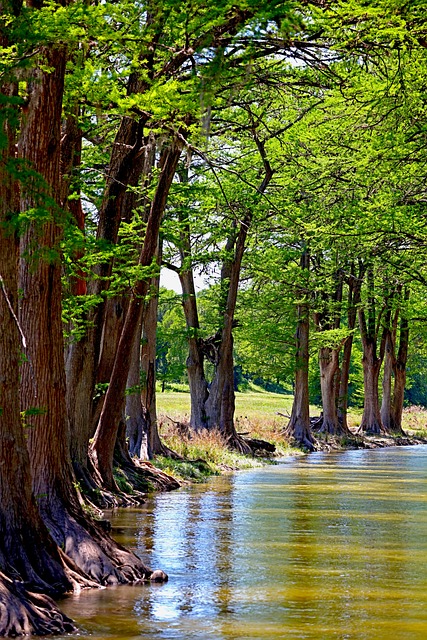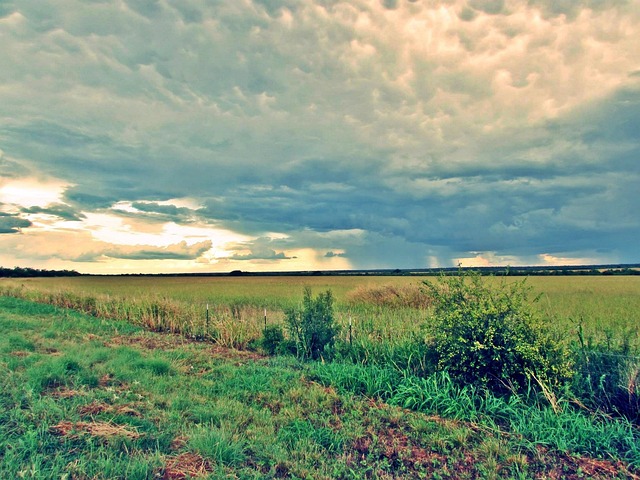Texas boasts a rich historical tapestry that includes its time as an independent republic, influenced by Indigenous peoples, Spanish explorers, and various immigrant groups. The Texas Revolution in 1836, epitomized by the iconic Battle of the Alamo, marked its path to independence from Mexico. Texas was later admitted as the 28th state in the U.S., solidifying its "Cowboy State" reputation and significantly impacting American history with its contributions, including its influential cattle industry. The state's natural wonders are equally remarkable, featuring diverse ecosystems like impressive canyon systems, such as Caprock Canyons State Park, and the longest subterranean river in Texas, the Comal River. These geological phenomena offer a window into the state's dynamic past and provide sustenance to unique ecosystems. Texas is also recognized for its cultural diversity, with vibrant festivals, art, music, and cuisine reflecting its multifaceted societal mosaic. Economically, it leads in energy production, agriculture, and technology innovation, with hubs like the Silicon Hills around Austin contributing to its economic prominence. Major cities such as Houston, Dallas, and San Antonio are centers for industries including aerospace and biomedical research. Texas is committed to sustainability, investing in renewable energy resources, showcasing its adaptability and forward-thinking stance in the modern American landscape.
Discover the essence of Texas, a state rich in history, natural beauty, and cultural diversity. From its iconic Lone Star symbol to the grandeur of its canyons and the flow of its subterranean rivers, Texas holds a tapestry of tales and landscapes waiting to be explored. Delve into the vibrant communities that call this state home, each adding a unique thread to Texas’ cultural mosaic. Join us as we uncover the facets that make Texas an intriguing blend of the past and present, a place where history, nature, and society intertwine to create a one-of-a-kind American experience.
- Uncovering the Lone Star State: Fascinating Historical Nuggets of Texas
- Texas' Natural Wonders: From Majestic Canyons to Underground Rivers
- Cultural Mosaic and Modern Marvels: Texas' Diverse Societies and Economy
Uncovering the Lone Star State: Fascinating Historical Nuggets of Texas

Texas, known as the Lone Star State for its former status as an independent republic and for the lone star on its flag, is a veritable treasure trove of historical narratives that are as diverse as its landscapes. From the ancient Indigenous cultures that once thrived across its vast plains to the influences of Spanish explorers and the eventual settlement by Americans, Texas’s history is a rich mosaic. One fascinating historical nugget is the state’s role in the Texas Revolution, which led to its independence from Mexico in 1836 following the famous Battle of the Alamo. This pivotal event and the subsequent formation of the Republic of Texas captivated the attention of the world at the time and continues to be a subject of intrigue today. Later, Texas joined the United States as its 28th state in 1845, marking a new chapter in its storied past. Throughout the 19th century, it became an economic powerhouse with its cattle industry, known as the “Cowboy State,” contributing significantly to its economy and cultural identity, which has been immortalized in literature, film, and folklore. The historical legacy of Texas is a tapestry woven with threads of Spanish colonial heritage, wild west adventures, and significant contributions to the formation of modern America, making it an essential subject for history enthusiasts and casual observers alike.
Texas' Natural Wonders: From Majestic Canyons to Underground Rivers

Texas boasts an array of natural wonders that rival any in the country, showcasing its diverse ecosystems and geological formations. The state’s western borders are graced by the majestic canyons, which, while not as iconic as their Arizona counterparts, offer equally breathtaking vistas and hiking opportunities. The Caprock Canyons State Park near Dallas is one such site, featuring a deep escape from the surrounding plains with its colorful layers of rock and diverse wildlife. These canyons are a testament to the dynamic geological history of Texas, offering visitors a chance to witness the power of erosion and the resilience of nature.
Beneath the surface of Texas lies a labyrinth of underground rivers, such as the Comal River in the Hill Country, which is the longest subterranean river in the state. These waterways flow silently beneath the earth, emerging in crystal-clear springs and forming subterranean rivers that sustain ecosystems unique to their environment. The natural beauty of these aquatic wonders is matched only by their significance in supporting local biodiversity and providing recreational opportunities for adventurers seeking cool refuge from Texas’ heat. From the awe-inspiring Palo Duro Canyon, often referred to as the “Grand Canyon of Texas,” to the mystical rivers that lie hidden beneath its soil, Texas’ natural wonders are as rich and varied as its cultural landscape.
Cultural Mosaic and Modern Marvels: Texas' Diverse Societies and Economy

Texas, a state as vast in geographical size as it is in its cultural and economic diversity, boasts a mosaic of societies that contribute to its rich tapestry of traditions and lifestyles. The Lone Star State’s history is marked by waves of immigration, each group leaving an indelible mark on the state’s culture, cuisine, and industry. From the original Indigenous peoples and Spanish explorers to the Anglo settlers and, more recently, immigrants from Latin America, Asia, and beyond, Texas has consistently welcomed newcomers who have brought with them unique customs, beliefs, and culinary traditions. This melting pot of cultural influences is evident in Texas’s vibrant cities, where festivals, art, music, and food reflect the state’s multicultural nature.
Economically, Texas is a powerhouse, with its robust energy sector, agricultural productivity, and burgeoning technology hubs contributing significantly to its GDP. The state is a leader in oil and gas production, agriculture, and has become a tech titan with a booming Silicon Hills region around Austin. Major metropolitan areas like Houston, Dallas, and San Antonio are not just cultural centers but also economic powerhouses, with diverse industries ranging from aerospace to biomedical research. Texas’s economy is characterized by its adaptability and innovation, with a focus on sustainability and the development of renewable energy resources. This dynamic blend of tradition and modernity positions Texas as a state at the forefront of American economic and cultural evolution.
Texas, a state as vast and diverse as its storied past, boasts a rich tapestry of history, natural splendor, and cultural vibrancy. From the historical intrigue found in “Uncovering the Lone Star State: Fascinating Historical Nuggets of Texas” to the awe-inspiring landscapes highlighted in “Texas’ Natural Wonders: From Majestic Canyons to Underground Rivers,” and the insights into its modern, multifaceted societies and economic prowess covered in “Cultural Mosaic and Modern Marvels: Texas’ Diverse Societies and Economy,” this article has unveiled the many layers of the Lone Star State. Texas stands as a testament to the enduring legacy of its pioneers, the resilience of its ecosystems, and the strength of its communities. As the second-largest state in both area and population, Texas continues to shape American history and culture in profound ways.



